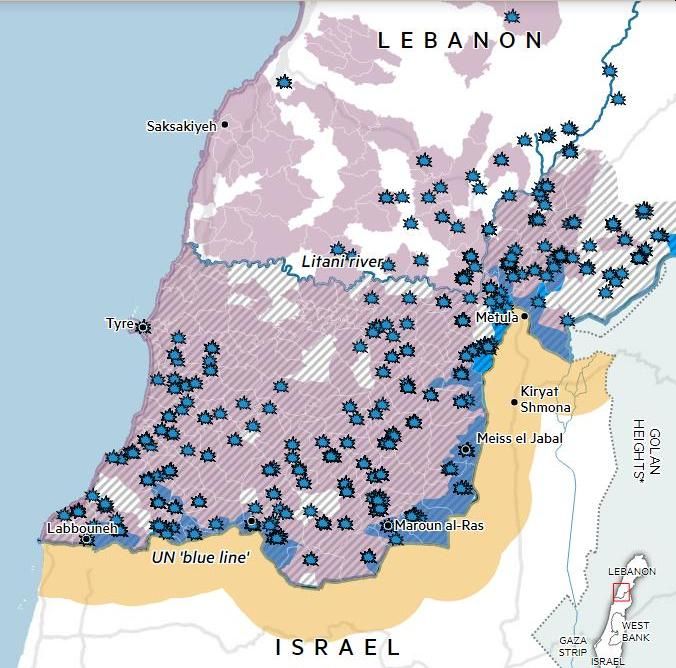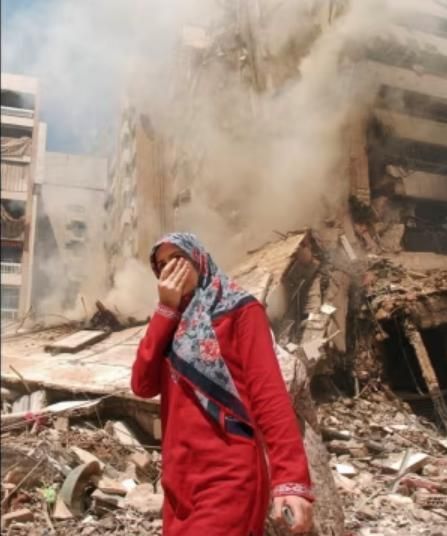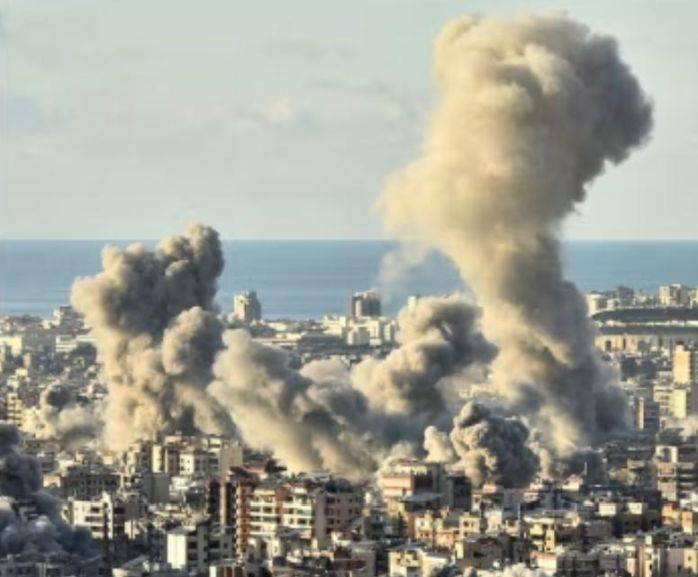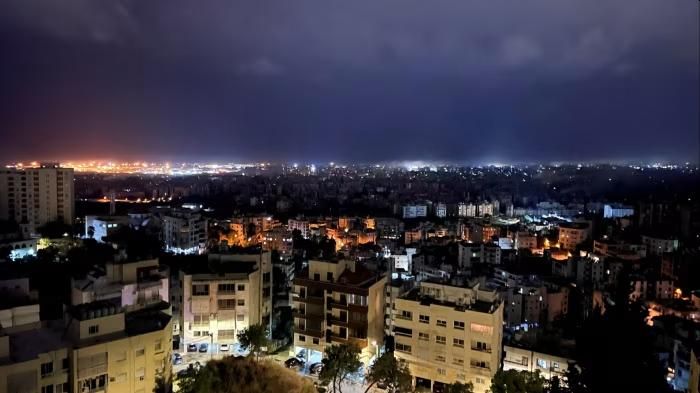By Eric Vandenbroeck and co-workers
The US-Brokered Ceasefire
A US-brokered
ceasefire has taken effect in Lebanon, raising hopes of an end to the year-long
hostilities between Israel’s forces and Hizbollah.
The ceasefire began
at 4 am local time on Wednesday after it was announced by US President Joe
Biden and approved by Israel’s security cabinet on Tuesday.
It appeared to be
holding in the immediate hours after coming into effect. The deal must also be
approved by Lebanon’s caretaker government.
“Under the
deal . . . the fighting across the Lebanese-Israeli border will end,” Biden
said. “This is designed to be a permanent cessation of hostilities.”
Under the terms of
the deal, the Israel Defense Forces will gradually withdraw from Lebanon over
60 days, and be replaced by the Lebanese army.
Hizbollah, the Lebanese militant group, will be barred from
rebuilding its infrastructure in southern parts of the country.
The Iran-backed
group’s fighters are meant to move mainly north of the Litani
river, which runs up to 30km from the Israel-Lebanon border.
Hizbollah has accepted the ceasefire agreement, according to
people involved in the negotiations.
Under the US-led
agreement IDF forces would withdraw from Lebanon and Hizbollah
would move north of the Litani river.

The US and France
would work with Israel and Lebanon for the deal to be fully implemented, Biden
said, adding there would be no US troops.
French President
Emmanuel Macron said his country would “spare no effort to support the
implementation of this agreement”, which “should open a new page for Lebanon”.
Israeli Prime
Minister Benjamin Netanyahu said earlier on Tuesday evening that Israel was
ready to implement the deal, but that the “duration of the ceasefire depends on
what will happen in Lebanon
He also insisted he
had reached “full understandings” with the US that Israel would maintain “full
military freedom of action” if Hizbollah violated the
agreement.
“If Hizbollah violates the agreement and tries to arm itself —
we will attack,” Netanyahu said.
“If it tries to
rebuild terrorist infrastructure near the border — we will attack. If it
launches a rocket, if it digs a tunnel, if it brings in a truck with missiles —
we will attack.”

As Netanyahu spoke,
the Israeli military conducted heavy air strikes across Lebanon, including
several neighborhoods in central Beirut previously untouched by the conflict.
Diplomats hope the
deal will pave the way for an end to one of the bloodiest rounds of fighting in
decades of conflict between Israel and Hizbollah.
Biden’s team briefed
President-elect Donald Trump’s national security team on the terms of the
agreement in recent days.
Trump’s national
security adviser Mike Waltz welcomed the deal, saying on X: “I’m glad to see
concrete steps towards de-escalation in the Middle East.”
Waltz added Iran was
the “root cause of chaos & terror” in the Middle East and said the Trump
administration “will not tolerate the status quo of their support for
terrorism”.
The latest
hostilities between Israeli forces and Hizbollah
erupted last year when the group began firing rockets at Israel in solidarity
with Hamas, after its deadly October 7 attack on the Jewish state.
Israel responded to
the Palestinian militant group’s killings in southern parts of the country, and
the seizing of hostages, by invading Gaza, which has led to devastation in much
of the coastal enclave.

The fighting between
Israel and Hizbollah has since killed more than 3,700
Lebanese and more than 140 Israelis, as well as forcing people from their homes
on both sides of the border. More than 1mn Lebanese and about 60,000 Israelis
have been displaced.
For most of the past
year, the fighting between Hizbollah and Israel was
largely confined to exchanges of fire in a narrow strip of land either side of
the Blue Line, the UN-demarcated border between the two countries.
But in recent months
it has escalated into a full-blown war, with Israel carrying out a ferocious
bombardment of targets across Lebanon before launching a ground invasion in
October.

The offensive dealt a
series of devastating blows to Hizbollah, killing its
longtime leader Hassan Nasrallah, and damaging large amounts of its weapons and
infrastructure as well as destroying broad swaths of the country’s east and
south.
Hizbollah and its patron Iran said most of the last year that
they would not agree to a ceasefire without an end to the war in Gaza.
But Hizbollah has since changed its position, and Israel’s
offensive in Gaza continues.
Biden said his
administration would pursue an effort to revive talks among Turkey, Egypt,
Qatar, and Israel on a ceasefire in Gaza.
He added
normalization of relations between Israel and Saudi Arabia, and the
establishment of a Palestinian state, “remains possible”. Doing so “will
require making some hard choices”, he said.
“Now Israel must be
bold in turning tactical gains against Iran and its proxies into a coherent
strategy that secures Israel’s long-term safety and advances a broader peace
and prosperity in the region,” Biden said.
Macron said France
would pursue efforts to end the hostilities in Gaza and secure the release of
the hostages, as he highlighted “the unprecedented suffering of the people of
Gaza”.
For updates click hompage here